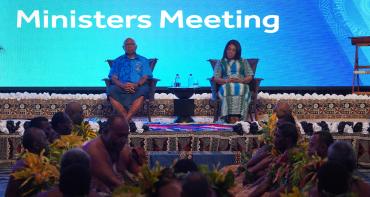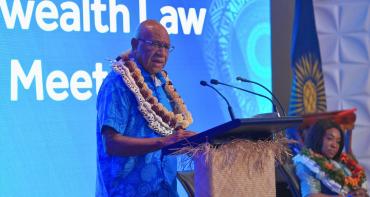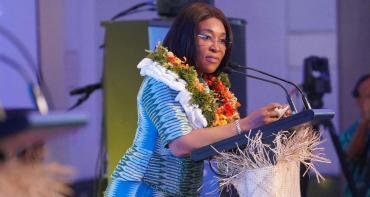A meeting of Caribbean judges and prosecutors will help to identify strategies to strengthen money laundering and terrorist financing laws, says Guyana President David Granger.
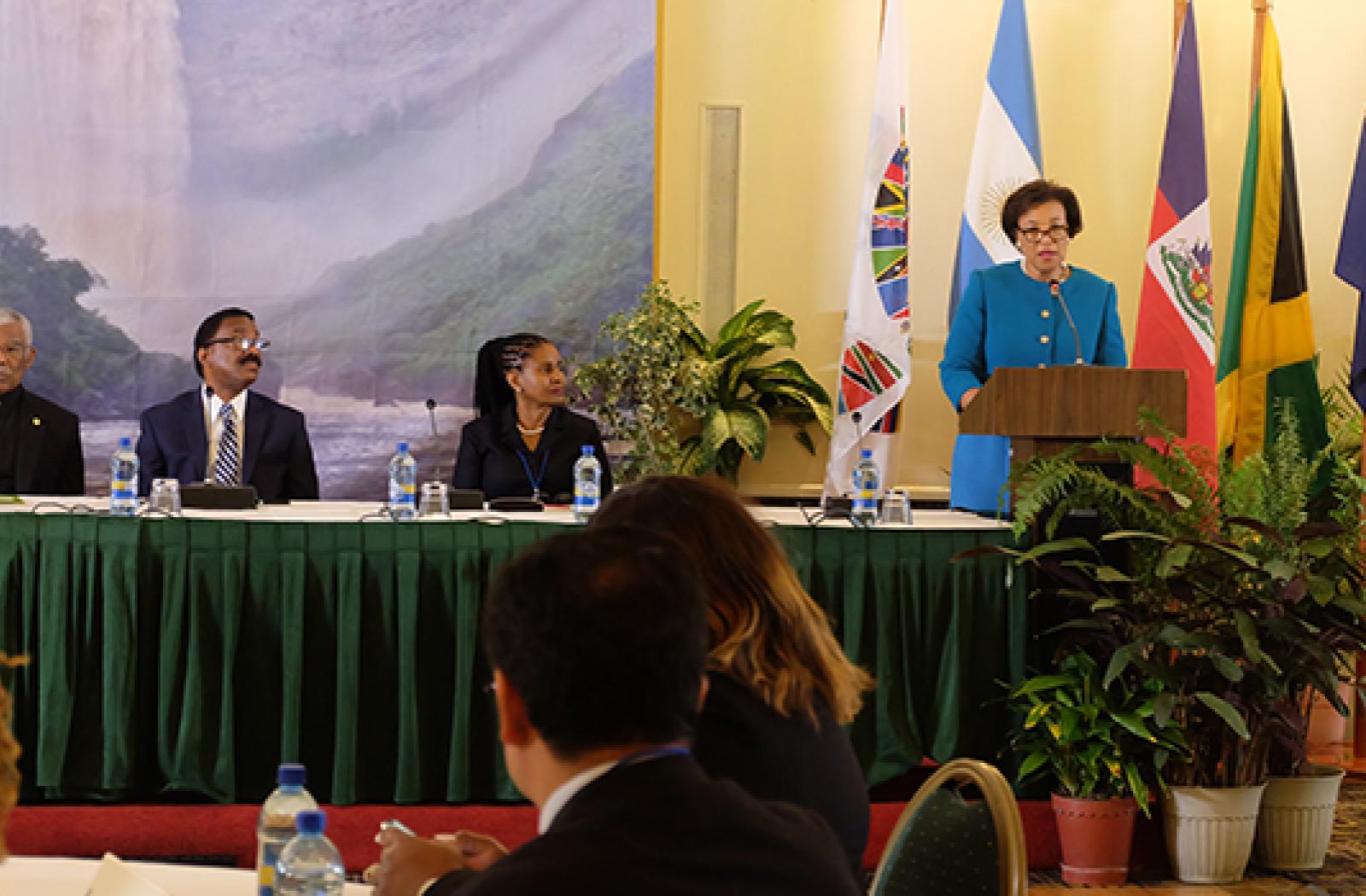
A meeting of Caribbean judges and prosecutors will help to identify strategies to strengthen money laundering and terrorist financing laws, says Guyana President David Granger.
Speaking at the opening of the workshop in Georgetown, Guyana, Mr Granger stressed the need for a strong stance on financial crimes. He said, “Caribbean countries must be strengthened with their collective institutions against the threat of money laundering and terrorist financing. Robust legislation and sturdy institutions are our weapons in the war against financial crimes.”
He continued, “This workshop is an important initiative in establishing mechanisms for Caribbean jurisdictions to strengthen measures for the continuous sharing of intelligence information and best practices which relate to financial crimes, for co-operating with each other in the investigation and conviction of transnational crimes and the enforcement of our financial laws and in continuing to build capacity of the institutions which police these systems.”
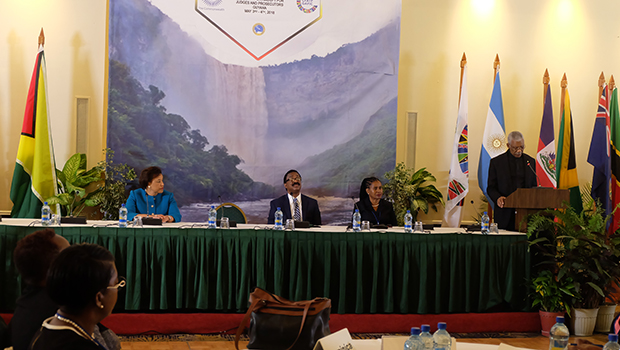
Organised by the Caribbean Financial Action Task Force (CFATF), the Commonwealth Secretariat and the Cooperative Republic of Guyana, the workshop aims to put the nuts and bolts into a strengthened and effective system for prosecution and confiscation in anti-money laundering (AML) and combatting the financing of terrorism (CFT) cases. It will help countries to prepare for CFATF assessment of the compliance and effectiveness of their laws, regulations and measures to tackle financial crimes.
Facilitated by Commonwealth and CFATF experts, including regional representatives, the workshop examines the best ways to handle money laundering cases and includes mock trials. The workshop also focusses on confiscation and restraint orders and the role of prosecutors and the judiciary in preventing terrorism, terrorist financing and violent extremism.
“It is a sad reality that terrorism and violent extremism continue as growing threats in Commonwealth countries,” said Secretary-General Patricia Scotland during the opening of the workshop.
She added, “We have a duty to be vigilant guardians, protecting the safety and wellbeing of our people, and ensuring that we have the capacity to safeguard our institutions in order to prevent them from being exploited for criminal and terrorist purposes.”
The Secretary-General also raised concerns about the unintended consequences of AML/CFT regulations on investment flows and business relationships. The Caribbean faces the risk of having their ties with overseas banks severed and loosing credit and other vital facilities. “Bank de-risking and AML/CFT regulatory frameworks – important as they are – can, in some jurisdictions, have unintended yet very serious consequences for remittances and other investment flows,” she said.
Secretary-General Scotland pledged to work with the region to address the range of concerns around AML/CFT management.
In the margins of the workshop she signed a Memorandum of Understanding (MOU) with the Caribbean Community (CARICOM) Secretary-General, Irwin LaRocque.
Mr LaRocque thanked the Commonwealth for its continued support and described the new agreement, which covers crime and security, as an indication of the strengthening of their relationship.
“The mutual co-operation and assistance,” he said, “will go a long way towards achieving sustainable development in the Caribbean Community, in the areas of economic growth, in the areas of climate change, the economy, youth, justice reform and others which are very critical to us.”
He added, “I had the great honour and pleasure of attending the Commonwealth Heads of Government Meeting, and some of the very issues that this MOU covers were discussed at length.” This included, he added, the need for reforms to address crime and security.
The Secretary-General commended Mr LaRocque for his leadership of CARICOM, in particular his support on climate resilience concerns.
Scotland has been meeting with leaders in the Caribbean to explore the Commonwealth’s role in minimising the impact of extreme weather events as the region’s hurricane season approaches.

